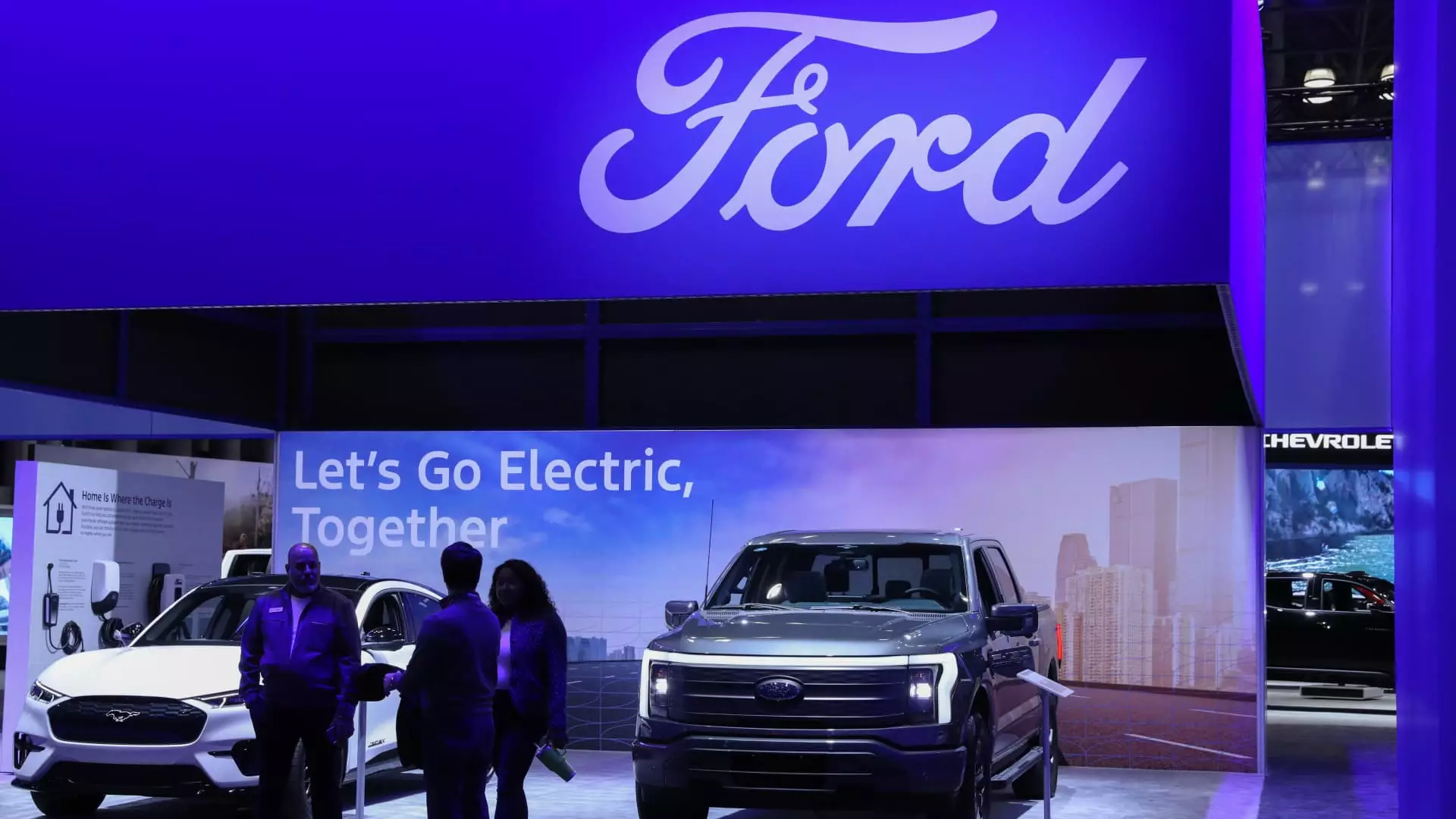Ford Motor recently announced a significant shift in its production plans, delaying the production of a next-generation all-electric pickup truck at a new plant in Tennessee and canceling plans for a three-row electric SUV. The company is now focusing on the development of hybrid models and electric commercial vehicles to better align with the market demands and competitive advantage.
Changes in Production Plans
Instead of moving forward with the all-electric pickup truck and SUV, Ford is prioritizing the development of hybrid models and electric commercial vehicles. This shift includes the introduction of a new electric commercial van in 2026, followed by two EV pickup trucks in 2027. The decision to focus on commercial land trucks and SUVs is driven by market demand and the company’s competitive advantage in these segments.
While the new production plans are aimed at delivering a capital-efficient and profitable electric vehicle business, they come with short-term costs for Ford. The company will incur a special noncash charge of about $400 million for the write-down of certain product-specific manufacturing assets, including the cancellation of the three-row SUV. Additionally, the changes may result in additional expenses and cash expenditures of up to $1.5 billion, which will be reflected in the company’s financial statements.
Shift in Capital Expenditure Plans
Ford is adjusting its future capital expenditure plans to allocate resources more effectively in line with the new production strategy. The company plans to shift from spending about 40% on all-electric vehicles to spending 30%, although a specific timeline for this change was not provided. This reallocation of funds reflects Ford’s commitment to adapting to market trends and optimizing its production portfolio.
Implications for Vehicle Production
The delay in production of the next-generation all-electric pickup truck at the Tennessee plant is a significant change from the initial expectations. While vehicle production at the new $5.6 billion Tennessee site was originally slated to begin next year, Ford is now focusing on starting battery cell production at the site in 2025. These adjustments are part of Ford’s broader strategy to align its production capabilities with market demands and profitability goals.
Customer-Centric Approach
According to Ford CFO John Lawler, the company’s decision to revise its production plans is driven by a customer-centric approach. By being nimble and responsive to customer feedback, Ford aims to offer a wider range of electrification choices that align with evolving preferences. This customer-focused strategy underscores Ford’s commitment to meeting the needs and expectations of its target market.
Despite the changes in production plans, Ford remains committed to its electrification goals and the continued success of its existing all-electric vehicles such as the Ford Mustang Mach-E crossover and F-150 Lightning pickup truck. The company plans to provide investors with an update on electrification, technology, profitability, and capital requirements in the first half of 2025, signaling a proactive approach to communicating its strategic direction and future initiatives.
Ford’s shift towards hybrid and electric commercial vehicles reflects a strategic response to changing market dynamics and competitive pressures. By optimizing its production portfolio and focusing on areas of competitive advantage, Ford aims to build a sustainable and profitable electric vehicle business while staying responsive to customer preferences and market trends.


Leave a Reply